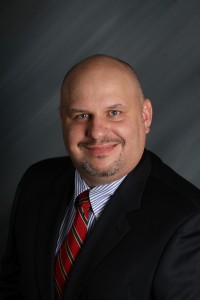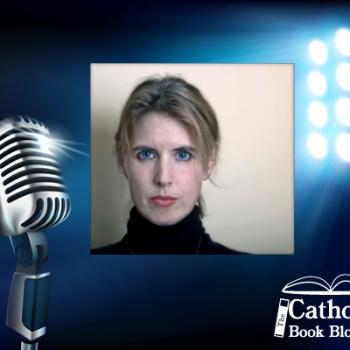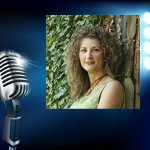 PETE: In your new book Broken Gods you set forth the notion that we are meant to be gods. We have heard it said we are to strive to be saints, but gods? Can you tell us what it means to be a god?
PETE: In your new book Broken Gods you set forth the notion that we are meant to be gods. We have heard it said we are to strive to be saints, but gods? Can you tell us what it means to be a god?
GREGORY K. POPCAK: It sounds blasphemous, doesn’t it? But the Catechism #460 provides the launching point for this book
The Word became flesh to make us “partakers of the divine nature” (2Ptr 1:4): “For this is why the Word became man, and the Son of God became the Son of man: so that man, by entering into communion with the Word and thus receiving divine sonship, might become a son of God” (St Irenaeus). “For the Son of God became man so that we might become God” (St. Athanasius). “The only-begotten Son of God, wanting to make us sharers in his divinity, assumed our nature, so that he, made man, might make men gods” (St. Thomas Aquinas).
That passage presents some spiritual heavy-hitters saying some pretty provocative things! Of course, there is only One God who is all-knowing and all-powerful and, of course, we are not Him. But what these great Fathers of the Church are affirming is the idea that God loves us so much that he doesn’t want to imagine a single moment of eternity without us in it, and because of that he needs to work in us an incredible transformation.
Scripture tells us that “nothing that is unclean can enter the Kingdom of Heaven” (Rev 21:27) but, as we are all too well aware of, we’re nothing BUT unclean. All of us sin. All of us are broken. And we can do no better than this on our own.
So God, first through his incarnation, and then through our participation his sacramental grace, intends to do a work in us so wonderful, so amazing, that we could never even hope to wrap our heads around it. He intends to make us gods (small “g”)–beings who are perfect, and immortal–who can be completely united to him, live with him and be loved by him for all of eternity.
That word “gods” is jarring, but it isn’t my word. It is the word used in Scripture (c.f, Ps 82:6; John 10:34) and chosen universally by the Fathers of the Church to represent God’s plan for our ultimate fulfillment. This process of becoming the god God intends us to be is called, “Divinization” (aka “deification” or “theosis”) by theologians and whether we realize it or not, it is the primary purpose of the Christian life!
Too many Christians spend their lives running from sin, but the Christian is called to do so much more than that. We are called to run toward the divinity God wants to gift us with. Just as the Prodigal Son ran toward the Father wrapped who wrapped his finest cloak around him, we are called to run toward God the Father who wants to wrap his very own divinity around us and make us partakers in his very own divine nature (2 Peter 1:3-4) so that we can live with and be loved by him for all of eternity. That is what it means to become a saint. This is exactly what all the saints, by god’s grace, have done and modeled for us with their lives.
PETE: How did you develop the concept for this book?
GREGORY K. POPCAK: : I suppose it began years ago when I first encountered that passage in the catechism I quoted above. It was so jarring. What could it mean? My prayerful reflection and research ultimately led to the development of this book.
But more than just unpacking this idea of divinization, I wanted to share with readers the process our Christian mystical tradition has discovered for allowing this mysterious transformation to unfold in our lives. I take readers, step-by-step through this process which is both stunningly simple and profoundly life-altering. I think readers will be surprised by what they find, even if they are familiar with these concepts.
PETE: In your research for Broken Gods what was the most surprising thing you found?
GREGORY K. POPCAK: That the pathway to divinization begins with developing a healthy understanding and relationship with our earthly experience of desire. Christians have a tendency to be very suspicious of desire. We know how damaging it can be so we often fear it, ignore it, and try to squelch it. But this impulse is completely antithetical to the Christian path of perfection.
Instead, our Christian mystical tradition teaches us to embrace the divine longings that drive our deepest, and even darkest, desires and to discover how those longings reveal God’s plan for our ultimate fulfillment.
PETE: The concepts behind the book, specifically the seven longings, and our inner desire for a close, personal relationship with our creator are not new concepts. In fact the Church Fathers wrote about these often. How much does your work Broken Gods draw from the early Church?
GREGORY K. POPCAK: I would never have had the courage to write this book if so many other great saints and doctors of the Church had not trod this ground before me. This book represents my attempt to stand on the shoulders of giants and call the attention of the modern world to this incredible and ancient truth that is hidden in plain sight. All of the parts of the book that explain the concept of divinization and the process by which we are transformed through God’s grace into the perfect an immoral beings–the gods–God intends us to be are drawn from the writings of the Fathers.
The parts of the book that are novel, however, are two-fold. First, while many other spiritual writers have spoken generically about divine longings that drive our desires, Broken Gods is the first book to attempt to identify those universal longings by name, and to help the reader begin to understand what specific longings are driving the sins and failings that take so much of our time, effort and energy. I think that readers will be struck by how both universal and personal these longings truly are.
Secondly, drawing from the example of Pope St John Paul the Great’s Theology of the Body, which tells us that the prayerful contemplation of our bodies can reveal important lessons about God’s plan for our life and relationships. Broken Gods explores the lessons brain science and psychology can teach us about how to cooperate more efficiently with God’s plan for our perfection in grace. Too often, our efforts to cooperate with God’s plan for our ultimate fulfillment is marred by our struggles with self-hatred, crushing guilt, frustration, and a compulsive relationship with our besetting sins. Broken Gods shows how we can get past these obstacles more efficiently and allow cooperate with God’s grace more perfectly so that the parts of ourselves we like the least can become the engines that drive our ultimate perfection in Christ.
PETE: What is your greatest hope for Broken Gods?
GREGORY K. POPCAK: That people will come to a new appreciation of the degree to which God loves them. That readers will discover that God loves them so much that he can’t even imagine spending a moment of eternity without them and how that very ache in God’s heart for us drives him to go to incredible lengths to satisfy the ache in our hearts for a love that will never fail us.
PETE: Time for my signature ending question. This is a blog about books. What is currently on your bookshelf to read?
GREGORY K. POPCAK: I try to keep a professional book and a personal book going at all times. So, right now I’m reading Families and Faith a book by sociologist Vern Bengtson that looks at the latest research on what it takes to pass faith on to our children. I am also a sucker for mysteries, so I am reading Ian Caldwell’s The Fifth Gospel, which is story about a murder that exposes an ill-fated attempt to try to bring an end to the Great Schism.
Dr. Greg Popcak is the author of almost 20 books, including Broken Gods: Hope, Healing, and the Seven Longings of the Human Heart. He directs the Pastoral Solutions Institute which provides tele-counseling services to Catholics around the world. Learn more at www.CatholicCounselors.com
_____________________________________________________________________________________________________
Other books by this author:
God Help Me! This Stress Is Driving Me Crazy!: Finding Balance Through God’s Grace
Beyond the Birds and the Bees











